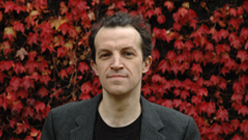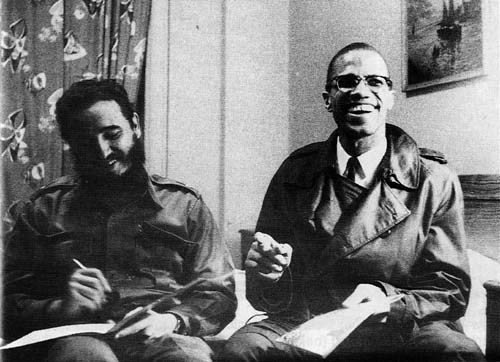Derek Wall: 'Ecosocialism places Marx at the centre of its analysis'

September 10, 2011 -- Green Left Weekly -- Economist, activist and writer Derek Wall (pictured above) is a member of the Green Party of England and Wales (and the Green Left grouping within it) and is the author of several books on ecology and politics. Wall will speak via video link at the Climate Change Social Change activist conference in Melbourne,r September 30 to October 3. He maintains the ecosocialist blog Another Green World. He spoke to Green Left Weekly’s Simon Butler about the politics of ecosocialism.
* * *
What are the most valuable insights ecosocialists can bring to discussions about the source of our ecological problems?
Ecosocialism, without being reductionist, cuts to the roots of the ecological crisis. The destruction of the environment is not an accident. It is not simply a problem of false ideas and it is not a product of inappropriate policies that can easily be dealt with by electing a new set of politicians.
Black liberation and the Communist International

Claude McKay.
By John Riddell
September 11, 2011 -- This article also appears at http://johnriddell.wordpress.com, posted at Links International Journal of Socialist Renewal with John Riddell's permission -- The influence of the Communist International was decisive in the early 1920s in winning a generation of black revolutionaries to Marxism. On this the historians agree. But what did this influence consist of, and how was it exerted?
By the Swaziland Democracy Campaign
September 10, 2011 -- Links International Journal of Socialist Renewal -- Friday, September 9, marked the last day in the second Global Week of Action on Swaziland, culminating in a large protest march in Mbabane that resulted in pitched battles between a heavily armed and aggressive security detachment, and mostly poor workers, students and the unemployed, who gathered legally and peacefully as they have done all week.
On September 5 and 6 (Monday and Tuesday) only minor skirmishes took place, and the security services were restrained and largely non-provocative. This is as it should be. The marches were legal, and the organisers made it clear that they wanted to exercise the few rights that they have.
There have been more than 20 protests across the world, and seven inside South Africa. These took place outside of the various offices of the Reserve Bank of South Africa in order to draw attention to the ill-advised bailout of R2.4 billion that is being offered to the Swazi regime through the Reserve Bank, "facilitated" by the South African African National Congress (ANC) government. The protests were also about the need for solidarity with the democratic forces inside Swaziland.
On the Australian left: 'Let’s unite behind Green Left Weekly'

September 8, 2011 -- Green Left Weekly -- For many years we were regular contributors to Green Left Weekly and proud supporters of the paper. We’ve now decided to resume writing for GLW and we urge other former contributors to consider doing the same.
In May 2008, we and about 50 other former members of the Democratic Socialist Perspective (DSP) launched the Revolutionary Socialist Party (RSP) and the monthly paper Direct Action (DA) following a bitter internal dispute in the DSP that centred on the Socialist Alliance.
In August 2010, we and six other members of the Sydney branch of the RSP left the organisation as a group, having concluded that the RSP was not viable as a Marxist party because it lacks both a critical mass of activists and realistic possibilities for recruitment.
We were unable to establish enough of a readership and support base for DA to justify the effort that goes into the paper.
GLW, on the other hand, has established itself over the past two decades as a socialist publication with a relatively high profile, readership and support base.
It’s the only such publication that comes out weekly and its website is among the ten most visited Australian political websites.
Malalai Joya: Occupation troops are making Afghanistan worse

Malalai Joya. Photo: malalaijoya.com.
Swaziland liberation movement leader: 'Build an unstoppable tsunami for freedom!'

Mario Masuku, president of the People's United Democratic Movement.
Bolivia: Development before environment?

Indigenous Bolivians begin a 500-kilometre protest march to La Paz.
By Federico Fuentes
September 8, 2011 -- Green Left Weekly -- The decision by leaders of the Sub Central of the Indigenous Territory and National Isiboro Secure Park (TIPNIS) to initiate a 500-kilometre protest march on Bolivia's capital of La Paz has ignited much debate about the nature of Bolivia’s first Indigenous led-government. The Sub Central of TIPNIS unites the 64 indigenous communities within the park.
Much analysis has focused on the supposed hypocrisy of the government headed by Evo Morales, Bolivia's first Indigenous head of state. The Morales government has been criticised for pursuing pro-capitalist development and trampling on the rights of its own Indigenous people.
Many analysts have also highlighted the contradiction between Morales’ public discourse in defence of Indigenous rights and Mother Earth, and the proposal of his government’s to build a highway that would run through this protected area of the Amazon.
Lucy Parsons: 'More dangerous than a thousand rioters'

Lucy Parsons, 1930: "I have seen many movements come and go. I belonged to all of those movements. I was a delegate that organized the Industrial Workers of the World. I carried a card in the old Socialist Party. And now I am today connected with the Communists."
By Keith Rosenthal
Evolution not 'reinvention': Manning Marable's Malcolm X

Malcolm’s political evolution was influenced by his own experiences and his discussions with Fidel Castro and Che ..., with Nasser in Egypt and Kwame Nkrumah in Ghana,